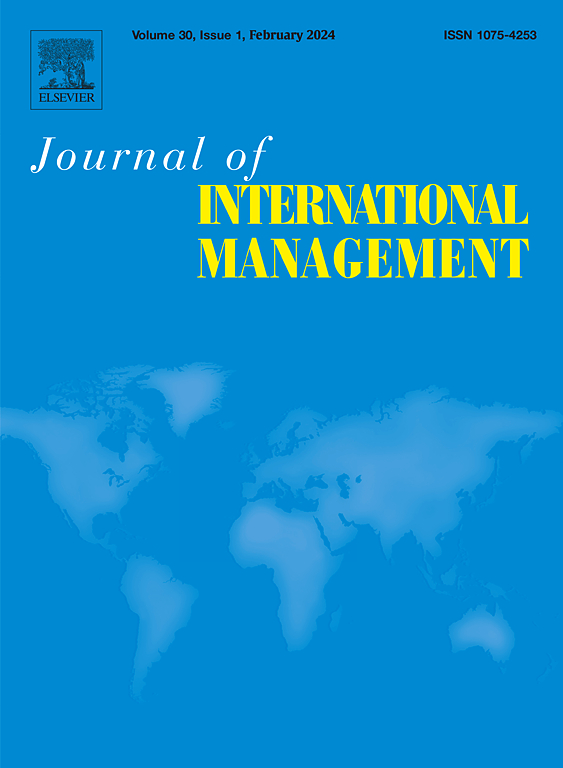It is not only what you say, but how you say it: A language attitude perspective of skilled migrants' culture-related linguistic skills and workplace integration in multinational corporations
IF 5.9
2区 管理学
Q1 MANAGEMENT
引用次数: 0
Abstract
This study adopts an abductive approach, drawing on the language attitude perspective and interviews with 168 skilled migrants (SMs) to examine how and why culture-related language differences influence the workplace integration of SMs in Japan-based multinational corporations (MNCs). Our analysis shows that three culture-related language differences — (1) honorifics, (2) indirect expressions, and (3) empathic expressions — lead local employees to categorize SMs as outgroup members and to negatively evaluate their professional and managerial abilities. Despite having high general language proficiency, SMs continue to occupy disadvantaged positions in local MNCs, primarily due to local employees' negative assessments of actual or perceived differences in culture-related linguistic skills.
这不仅仅是你说什么,而是你怎么说:技术移民的文化相关语言技能和跨国公司工作场所融合的语言态度视角
本研究采用诱变方法,利用语言态度视角和对168名技术移民(SMs)的访谈来研究文化相关的语言差异如何以及为什么影响日本跨国公司(MNCs)的SMs工作场所整合。我们的分析表明,三种与文化相关的语言差异——(1)敬语、(2)间接表达和(3)移情表达——导致当地员工将短信归类为外群体成员,并对其专业和管理能力产生负面评价。尽管SMs具有较高的通用语言熟练程度,但在当地跨国公司中,SMs继续占据不利地位,主要原因是当地员工对与文化相关的语言技能的实际或感知差异的负面评估。
本文章由计算机程序翻译,如有差异,请以英文原文为准。
求助全文
约1分钟内获得全文
求助全文
来源期刊

Journal of International Management
MANAGEMENT-
自引率
9.80%
发文量
67
审稿时长
81 days
期刊介绍:
The Journal of International Management is devoted to advancing an understanding of issues in the management of global enterprises, global management theory, and practice; and providing theoretical and managerial implications useful for the further development of research. It is designed to serve an audience of academic researchers and educators, as well as business professionals, by publishing both theoretical and empirical research relating to international management and strategy issues. JIM publishes theoretical and empirical research addressing international business strategy, comparative and cross-cultural management, risk management, organizational behavior, and human resource management, among others.
 求助内容:
求助内容: 应助结果提醒方式:
应助结果提醒方式:


